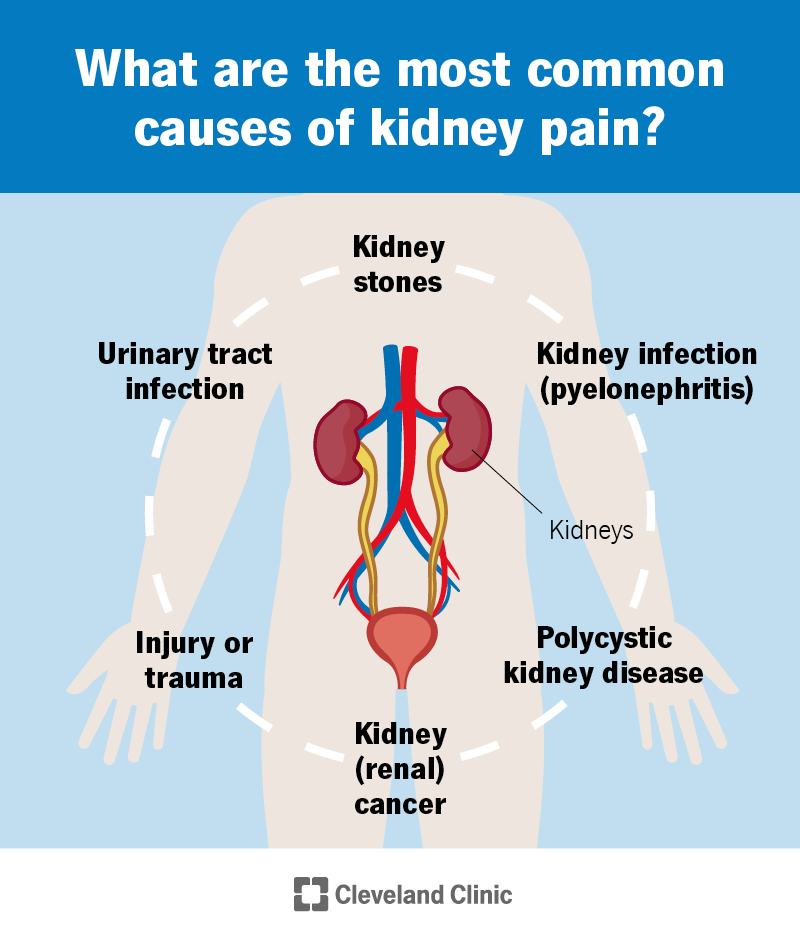Comprehensive Overview to Kidney Stones vs UTI: Medical Diagnosis, Triggers, and Relief
Comprehensive Overview to Kidney Stones vs UTI: Medical Diagnosis, Triggers, and Relief
Blog Article
Checking Out the Symptoms and Causes of Kidney Stones in Contrast to Urinary System Infections: An In-depth Guide
The expedition of kidney rocks and urinary system infections (UTIs) discloses an intricate interaction of signs and symptoms and underlying reasons that warrant careful examination. What are the essential differences in their symptoms, and exactly how might these notify treatment techniques?
Introduction of Kidney Stones
Kidney stones, also referred to as renal calculi, form when particular materials in the urine crystallize and aggregate, leading to the development of tough down payments within the kidneys. These rocks can vary in size, varying from a grain of sand to a golf round, and can be made up of different products, one of the most typical being calcium oxalate, uric acid, struvite, and cystine. The formation of kidney rocks is affected by a number of elements, including nutritional behaviors, fluid intake, and hereditary predisposition.
Signs and symptoms of kidney rocks may include extreme discomfort in the back or side, blood in the urine, nausea, and constant urination, particularly as the rock relocates via the urinary tract. Medical diagnosis normally includes imaging studies such as ultrasound or CT scans, along with urinalysis to determine the stone's make-up.
Treatment alternatives differ based upon the size and kind of stone, along with the intensity of symptoms (Kidney Stones vs UTI). Tiny stones might pass naturally with raised fluid consumption, while larger rocks may require clinical treatments such as lithotripsy or medical removal. Comprehending the pathophysiology and threat variables connected with kidney stones is crucial for reliable avoidance and management
Summary of Urinary System Tract Infections
Urinary system system infections (UTIs) are usual bacterial infections that influence any component of the urinary system, including the kidneys, ureters, bladder, and urethra. They mainly occur when germs, often from the stomach tract, go into the urinary system, leading to inflammation and infection. UTIs are classified into two major kinds: uncomplicated and difficult. Straightforward UTIs usually take place in healthy people with regular urinary system tracts, while challenging UTIs might emerge in people with hidden conditions, such as architectural irregularities or compromised immune systems.
The occurrence of UTIs is especially higher in females than guys, largely as a result of physiological differences, such as a shorter urethra. Threat aspects consist of sex-related activity, particular contraceptive techniques, urinary retention, and dehydration. The diagnosis of UTIs is usually verified with pee tests, which might reveal the visibility of bacteria, leukocyte, or red cell.

Signs of Kidney Stones
The pain associated with kidney stones can manifest in different means, frequently leading people to seek medical attention. One of the most typical symptoms is extreme discomfort, usually local in the lower back or side, which might radiate to the abdominal area or groin. check my source This discomfort, usually called sharp or cramping, can happen unexpectedly and might fluctuate in strength.
Additionally, individuals may experience hematuria, or blood in the pee, which can vary from tiny amounts to visible staining. This signs and symptom might be accompanied by modifications in urinary practices, such as increased frequency or necessity, along with pain during urination. Nausea and vomiting are also common, commonly arising from the body's response to extreme discomfort.
In some situations, individuals might experience fever and cools, especially if a second infection establishes due to the blockage triggered by the rocks. On the whole, the combination of extreme discomfort, hematuria, transformed urinary patterns, and intestinal symptoms can supply significant insight into the visibility of kidney stones, necessitating prompt medical evaluation and intervention. Understanding these symptoms is essential for prompt medical diagnosis and effective administration of the problem.
Signs And Symptoms of Urinary System Infections
Infections within the urinary system often provide a variety of unique signs and symptoms that can dramatically affect everyday life. One of the most typical signs and symptoms consist of a relentless desire to urinate, usually gone along with by a burning experience during urination, referred to as dysuria. People might likewise experience enhanced regularity of peeing, generating tiny amounts of urine each find time.
Various other noteworthy symptoms consist of over cast or fetid pee, which might suggest the presence of bacteria or pus. In many cases, look at more info pee may appear pink or red as a result of the existence of blood, a condition referred to as hematuria. In addition, individuals may experience pelvic discomfort or stress, which can additionally worsen the feeling of necessity.
Systemic signs and symptoms may also show up, such as fever, chills, and exhaustion, particularly if the infection has risen to the kidneys. It is crucial to identify these signs early, as untreated urinary system tract infections can lead to a lot more severe difficulties. Kidney Stones vs UTI. Trigger medical interest is recommended when these signs and symptoms are observed, enabling appropriate analysis examination and treatment to relieve discomfort and protect against additional wellness problems
Sources Of Each Condition
Regularly, kidney stones and urinary tract infections develop from distinct yet in some cases overlapping reasons that can influence people differently. Dehydration, inadequate liquid consumption, and high-sodium diet regimens can worsen these problems, promoting crystallization within the urinary tract.

Comprehending these distinct reasons is critical for avoidance and therapy. Kidney Stones vs UTI. While way of living alterations may reduce the risk of kidney rocks, suitable hygiene and punctual treatment of urinary system infections are necessary for minimizing their reoccurrence and associated difficulties
Final Thought
In recap, kidney stones and urinary system system infections present distinctive symptoms and underlying reasons. Kidney rocks are characterized by extreme pain and metabolic factors, while urinary system infections primarily include microbial infections leading to urinary necessity and pain.
The exploration of kidney rocks and urinary system tract infections (UTIs) exposes an intricate interplay of signs and underlying reasons that necessitate mindful assessment.Urinary system system infections (UTIs) are usual microbial infections that affect any type of component of the urinary system, consisting of the kidneys, ureters, bladder, and urethra.Frequently, kidney stones and urinary system infections emerge from distinctive yet often overlapping reasons that can affect individuals in a different way.In recap, kidney rocks and urinary system system infections present distinct signs and underlying causes. Kidney rocks are identified by extreme discomfort and metabolic factors, while urinary system infections largely involve bacterial infections leading to urinary urgency and discomfort.
Report this page